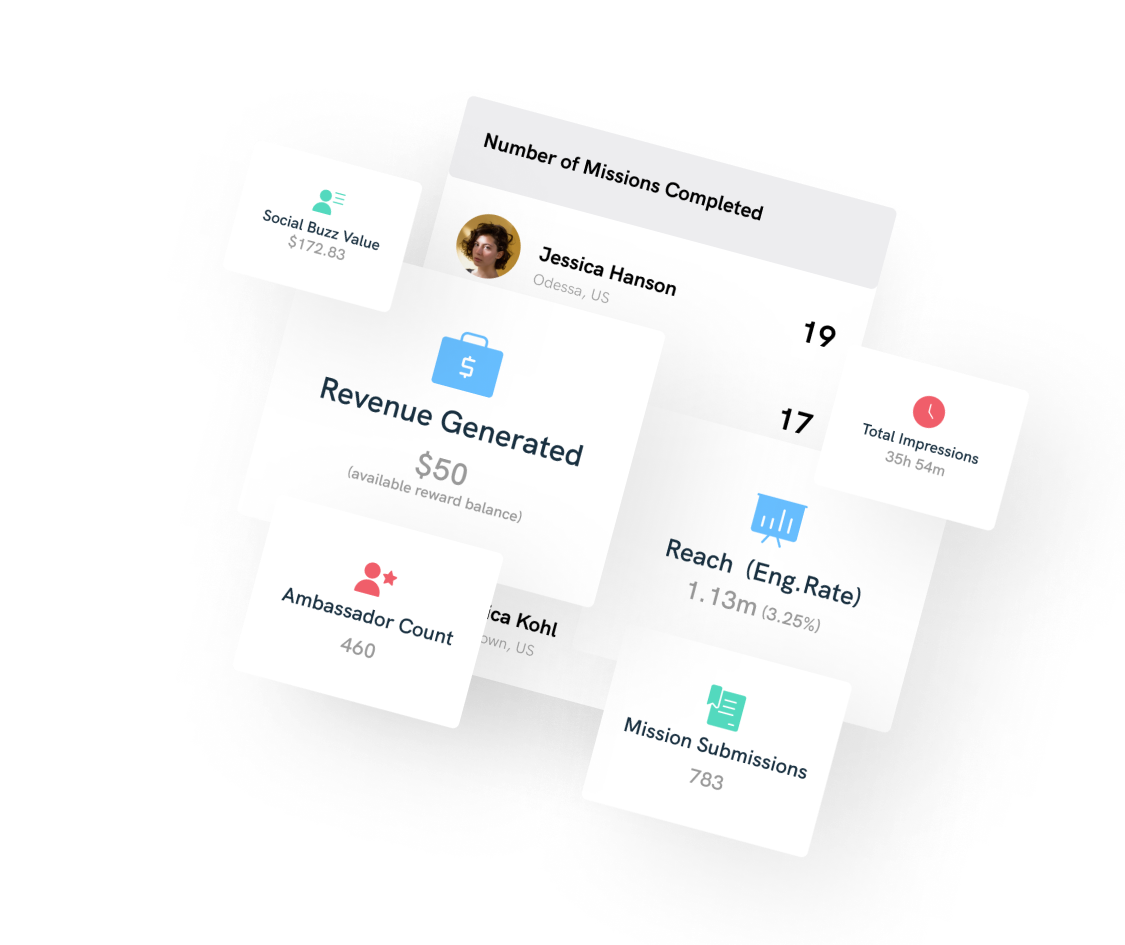Influencer marketing doesn't always come naturally. There are a number of skills needed to run a prosperous program that grows your brand’s ROI. Without a talented influencer marketing manager, it’s unlikely you’ll get very far before your return takes a dive.
Running an influencer marketing program is a lot like caring for a finicky plant. Unfortunately, you can't just set it and forget it. You've got to tend to it every day. If it starts wilting, you need to diagnose the issue and remedy it or pretty soon, it dies.
But the good news is that you can learn the necessary influencer marketing skills and develop a green thumb for influencer marketing and raise your bottom line.
8 Skills All Successful Influencer Marketing Managers Have
1. Written Communication
Any job that requires you to work with a large volume of people involves communication skills. However, many of the conversations and relationship-building that happen in an influencer marketing program are written.
It's important to be able to write clear and concise messages, explain concepts and ideas, and negotiate terms when managing relationships with influencers. The wrong tone of voice could sour a once great partnership. Too many errors or unclear expectations could lose potential partnerships.
Impressive written communication skills, though, can help you build a successful community and beneficial, long-term relationships with your best influencers.
2. Time Management
Running an influencer marketing program takes a hefty time commitment. Building communities takes time. Searching for and reaching out to new influencers to partner with that match your brand takes time.
Creating an influencer marketing strategy, building and running campaigns, and analysing the data to give your brand the best chance of success - you got it - take time.
Knowing how to prioritise and make processes more efficient are essential skills for any influencer marketing manager. Finding technology that can help expedite and automate processes can go a long way in making your influencer marketing program more effective and profitable.
Enhanced time management through these tools can significantly improve productivity and ensure timely execution of campaigns.
3. Tech Savvy
Speaking of tech that can help your outreach marketing run more smoothly, a great influencer marketing manager will be a complete tech whiz. Able to quickly pick up new platforms, they'll discover all the features that can save time and make your program more exciting.
Not only do they need to be efficient with your in-house software, but your influencer marketing manager needs to know the ins and outs of all major social media platforms, various types of CRM tools, and keep on top of emerging trends and technology to ensure you're always on top of the game.
4. Analytics and Strategy
Part of success involves understanding how your program is performing and being able to make the necessary adjustments to optimise your strategy. It helps if your influencer marketing manager is able to interpret data collected from your campaigns and use that information to rework your overall plan.
This information is priceless, but it requires an analytical mind to take the numbers and turn them into ideas that kick your influencer marketing up a notch.
5. Organisation
Being organised is one of the most important skills for an influencer marketing manager to possess. Juggling conversations, queries, campaign submissions, UGC collection, reward payouts and more are daily tasks.
Add to that developing and overseeing the influencer marketing strategy and how it relates to your overall strategy, and you have one chaotic to-do list! It's a wonderland for Type A personalities but might make everyone else break into a cold sweat.
Keeping your program organised not only ensures the whole thing doesn't fall apart, but it can also help you discover new opportunities, find places to save resources, and maximise your ROI. Organisation is critical to the success of any influencer marketing program.
6. Flexibility
Alongside being organised, your influencer marketing manager needs to be flexible. Working with large groups of people all over the world means unexpected things will happen, and your manager needs to be able to tackle them as they come.
What happens if a major partnership is late delivering time-sensitive content? How will they deal with payment or reward issues? And of course, what if an influencer heavily entrenched with your brand is involved in a scandal? Word travels fast - that's what influencer marketing counts on to work - so your manager needs to travel faster.
7. Community Building
Working with one or two major influencers is no longer cutting it. Not only are mega influencers starting to deliver less return on your investments, but trust in internet "celebrities" is declining. As a result, brands are turning to smaller creators and working with many more of them at a time.
Some brands work with hundreds of micro-influencers or brand ambassadors. Other brands work with thousands. If your influencer marketing manager is skilled in building and maintaining online communities, and uses modern networking tools like a digital business card, your brand is likely to thrive despite the changing marketing tides.
8. Creative
The best influencer marketing programs are those that are fun and exciting! Any brand can ask an influencer to take a picture of themselves with a product and post it on Instagram. It's become so common to see nowadays that it just kind of blends into the background.
If you want to stand out as a brand, you need to come up with creative campaigns. Things that make your influencers' audiences do a double or triple take. Stunts that have them talking for days.
Lighten the Load
An influencer marketing program is a lot for one person to take on. But the good news is there are tools designed to help you get the most out of your program while reducing the effort and resources needed to manage it!
Influencer management platforms can help with time management by automating a lot of the manual tasks your manager normally completes, such as reward payouts, contacting influencers, collecting UGC, and compiling data and metrics. These platforms keep everything organised in one centralised location and help foster a sense of community among your influencers.









